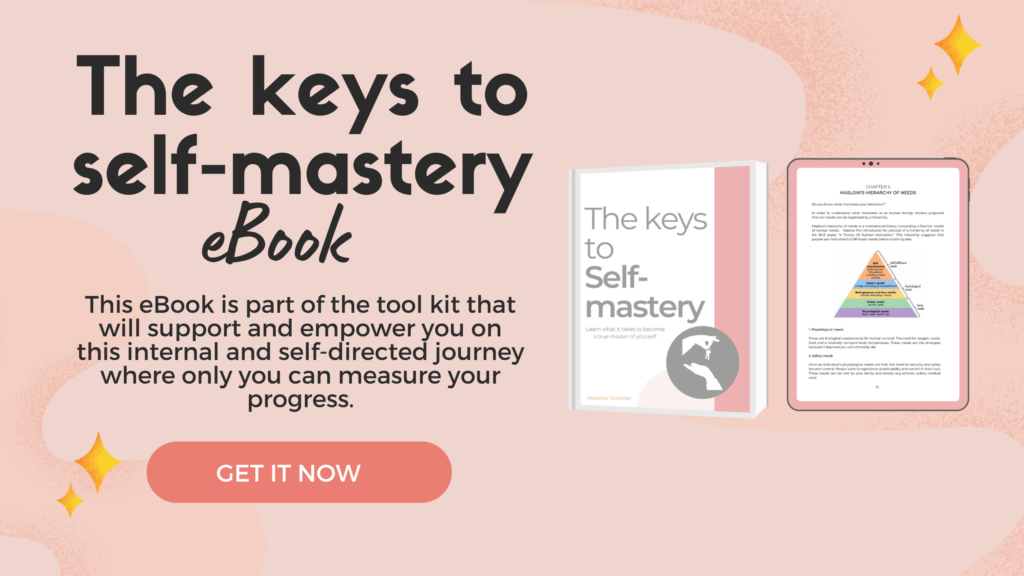
In a world that often emphasises the value of social connections, there’s an important distinction to be made between being alone and feeling lonely.
Many people associate solitude with a sense of isolation or sadness, but the truth is that being alone can be a fulfilling and rejuvenating experience. 😊
In this blog post, I will explore the nuances of being alone versus feeling lonely, understanding the importance of solitude, and embracing the positive aspects of both states.
Let’s get to it. 💕
The Difference Between Being Alone and Feeling Lonely:
Being Alone:
Being alone is a state of physical solitude, where you find yourself without the company of others. It can occur by choice or as a natural consequence of circumstances. Spending time alone provides an opportunity for self-reflection, relaxation, and personal growth.
It allows you to engage in activities that bring you joy, pursue hobbies, or simply enjoy a moment of peace. Being alone can be a deliberate choice, a time to recharge and connect with oneself. 🥰
Feeling Lonely:
Loneliness, on the other hand, is an emotional state that arises from a perceived lack of meaningful connections. It’s possible to feel lonely even in a crowded room if the connections are superficial or unfulfilling.
Loneliness is often characterised by a sense of emptiness, isolation, or a longing for deeper human connections. It’s a complex emotional experience that can impact mental and physical well-being. 😟

Embracing the Positive Aspects of Being Alone:
1. Self-Discovery:
Being alone provides an opportunity for self-discovery. It allows you to explore your thoughts, feelings, and interests without external influences. Use this time to reflect on your goals, values, and aspirations. Self-discovery is a crucial aspect of personal growth and can lead to a deeper understanding of oneself.
2. Independence:
Embracing solitude fosters independence. When you’re comfortable being alone, you become more self-reliant and less reliant on others for your happiness. This independence can empower you to make decisions based on your own needs and preferences, leading to a more authentic and fulfilling life. 🥰
3. Creativity:
Solitude often sparks creativity. When you’re alone with your thoughts, you have the mental space to generate new ideas, think critically, and engage in creative pursuits (yaay). Many artists, writers, and innovators find inspiration in moments of solitude, leading to the creation of meaningful and impactful work. 🎨
4. Rest and Rejuvenation:
Being alone allows for rest and rejuvenation. In a world filled with constant stimuli, taking time for solitude can be a form of self-care. It provides an opportunity to relax, recharge, and focus on activities that bring you peace and joy, contributing to overall well-being.

Addressing the Challenges of Feeling Lonely:
1. Cultivating Meaningful Connections:
If loneliness arises from a lack of meaningful connections, focus on cultivating relationships that nourish your soul. Seek out individuals who share your values and interests. Join clubs, organisations, or communities where you can meet like-minded people. Focus on getting yourself out there. Quality connections are often more fulfilling than a large social circle. 🫂
2. Volunteering and Giving Back:
Engaging in volunteer work or contributing to your community can alleviate feelings of loneliness. By helping others, you not only make a positive impact on the world but also connect with individuals who share a common purpose. Volunteering provides a sense of belonging and fulfillment.
3. Seeking Professional Support:
If loneliness becomes a persistent and overwhelming emotion, maybe consider seeking professional support. A therapist or counselor can provide guidance and a safe space to explore the root causes of loneliness. Addressing these issues with professional help can lead to a more fulfilling and connected life. 🫶
Finding Balance:
The key to a fulfilling life lies in finding a balance between being alone and fostering meaningful connections. Embrace solitude as a time for self-discovery, creativity, and rejuvenation. At the same time, actively cultivate relationships that bring joy and fulfillment. Recognise that both states are essential for a well-rounded and satisfying life. 💕
Conclusion
Being alone and feeling lonely are two distinct experiences, each with its own set of opportunities and challenges. Embracing solitude allows for self-discovery, independence, creativity, and rest. However, if loneliness creeps in, it’s crucial to address it by cultivating meaningful connections, volunteering, or seeking professional support. You are not alone. ❤️
Understanding the nuances between being alone and feeling lonely empowers you to navigate both states with intention and purpose. Ultimately, finding a balance between solitude and social connections contributes to a rich and fulfilling life. Embrace the positive aspects of being alone, foster meaningful connections, and savor the journey of self-discovery in this beautiful dance between solitude and companionship.
Pin this post for a reminder 📌 👇

Related Blogs
Things to Say “No” to for you to Live a Happier Life
How to Stop Settling For Less Than You Deserve
How to Become the Best Version of Yourself: A Guide For 20-Somethings
Getting up early can seem like a daunting task, especially if you’re not used to it. Like who really wants to be up at 4 or 5am? Not many people. 🤷♀️
But becoming a morning person can have many benefits, from improved productivity to better mental and physical health. If you’re looking to become a morning person and start your day off right, here are some tips to get you going!
What is a Morning Person?
A morning person is someone who wakes up early and is most productive and energetic during the morning hours. ☀️
Morning people tend to be more organised and have better time management skills. They are also more likely to stick to a routine and are better at planning ahead.
Morning people are often more optimistic and have higher levels of energy throughout the day.

Benefits of Becoming a Morning Person
Becoming a morning person has many benefits. For starters, you’ll be able to start your day off on the right foot.
You’ll be more organised, productive and energised. You’ll also be better able to manage your time and plan ahead better. 🕒
Additionally, becoming a morning person can help improve your mental and physical health. Studies have shown that getting up early and engaging in physical activities can help reduce stress and boost your mood. 🏃♀️
Practical Tips to Become a Morning Person
Becoming a morning person may seem like a daunting task when you’re used to waking up late, but there are a few practical tips you can use to make it easier.
The first step is to establish a regular sleep schedule and stick to it. Go to bed and wake up at the same time every day, even on the weekends. This will help your body adjust to the new routine and make it easier to get up early. 🛏️
Another tip is to gradually move your wake-up time earlier. Start by setting your alarm for 15 minutes earlier than usual and then gradually increase the time until you reach your desired wake-up time.
This will make the transition much smoother and easier. 😌
Finally, make sure you’re getting enough sleep. Aim for 7-8 hours of sleep a night. This will ensure you’re well-rested and energised for the day ahead.

Creating a Morning Routine
Creating a morning routine is essential for becoming a morning person. Your morning routine should include activities that make you feel vitalised and motivated to take on the day. This could be anything from reading a book to meditating or working out. 🏋️♀️
Start your morning routine with something that will help you wake up and get the day started on the right foot. This could be making your bed, having a cup of coffee or tea, or going for a walk. This will help you feel more awake and ready to tackle the day.
Next, set aside some time for activities that will help you stay focused and motivated throughout the day. This could be reading, journaling, or working on a project. 💻
Finally, do something that will help you relax and unwind. This could be listening to music, taking a hot bath, or practicing yoga. This will help you stay calm and relaxed throughout the day.
Related: Want to learn more about creating a morning routine? Check out our 4-week mini-course – How to Set Goals & Achieve them!
Check it out here 👇

Dealing with Morning Fatigue
Even if you’ve been following a regular sleep schedule, you may still feel tired in the morning. This is normal and can be caused by a variety of factors, including stress, hormones, and inadequate sleep. 😴
The best way to deal with morning fatigue is to take a few minutes to rest and relax. Take a few deep breaths, drink a cup of coffee or tea, and listen to some relaxing music. This will help you feel more alert and less likely to press the snooze button. ⏰
If you’re still feeling tired, try going for a walk or taking a cold brisk shower. This will help wake up your body and get your blood flowing. You can also try eating a healthy breakfast, as this will give you the energy you need to make it through the day.
Never doubt the power of a good breakfast! 🍲
Establishing a Healthy Sleep Schedule
Getting enough sleep is essential for becoming a morning person. To ensure you’re getting the proper amount of sleep, establish a healthy sleep schedule and stick to it.
Go to bed and wake up at the same time every day, even on the weekends. 🛏️
It’s also important to keep your bedroom dark and quiet. Make sure you have blackout curtains or shades to block out any light. Additionally, avoid screens and electronics before bed, as the blue light they emit can interfere with your sleep. 😴
Finally, avoid caffeine and alcohol late at night. Caffeine can disrupt your sleep and alcohol can make it difficult to stay asleep.

Exercising in the Morning
Exercising in the morning can help you become a morning person. Not only does it help wake you up and get your blood flowing, but it also releases endorphins that can help boost your mood and energy levels.
If you’re new to exercising in the morning, start small. Try going for a walk or doing some simple 10-minute yoga stretches. You can also try running, biking, or swimming if you’re feeling more adventurous. 🏊♀️
To stay motivated, try to find something you enjoy doing, not something that everyone else is doing. This will make it more fun and help you stick to it. 😄
Additionally, make sure to set realistic goals for yourself and gradually increase your intensity as you progress.
RELATED: Check out our Health Bundle for all things health-related!

Making Breakfast a Priority
Breakfast is the most important meal of the day, and making it a priority will help you become a morning person. Eating a healthy breakfast will give you the energy you need to make it through the day.
Try to include a variety of nutrient-rich foods in your breakfast. This could include eggs, oatmeal, yogurt, or fruit. Additionally, try to avoid processed foods, as they can cause an energy crash later in the day. 😬
Finally, make sure you’re eating breakfast at the same time every day. This will help your body adjust to the new routine and make it easier to get up early. 🙂
Strategies to Stay Motivated and Focused in the Morning
Staying motivated and focused in the morning can be a challenge, especially if you’re not used to it. Here are a few strategies to help you stay on track.
✨First, set realistic goals for yourself. Aim for goals that are achievable and don’t overwhelm you. This will help you stay focused and motivated.
✨Second, make sure you’re getting enough sleep. Aim for 7-8 hours of sleep a night. This will ensure you’re well-rested and energized for the day ahead.
✨Third, create a morning routine that includes activities that make you feel revitalised and motivated. This could be reading, journaling, or working on a project. This will help you stay productive and focused.
✨Finally, reward yourself for achieving your goals. This could be anything from a piece of chocolate to a hot bath with candles surrounding you. This will help you stay disciplined and encourage you to keep going.
How to Become a Morning Person – Conclusion
Becoming a morning person can seem like a daunting task, but it can have many benefits, from improved productivity to better mental and physical health. 🏋️♀️
To get started, establish a regular sleep schedule, create a morning routine, and make breakfast a priority. Additionally, make sure you’re getting enough sleep and exercising in the morning.
Finally, set morning goals and find strategies to stay motivated and focused. With these tips, you’ll be well on your way to becoming a morning person and starting your day off right. ☀️
Pin this post for a reminder 📌 👇

Related Blogs
10 Encouraging Signs You’re Doing Well in Life
Why Intentional Living is The Best Thing You Can Do For Yourself
How to Practice Emotional Regulation: Tips For Adults on How to Cope
Did you know that people on my email list sometimes get exclusive discounts on my products? Join the community and save yourself some coins!
Freshly-squeezed inspiration, and no-nonsense tips + tricks to improve your life delivered to your inbox weekly.
Subscribe to my newsletter
Subscribe
You're all signed up!
Be sure to whitelist our email address so that all the goodies make it to your inbox.
